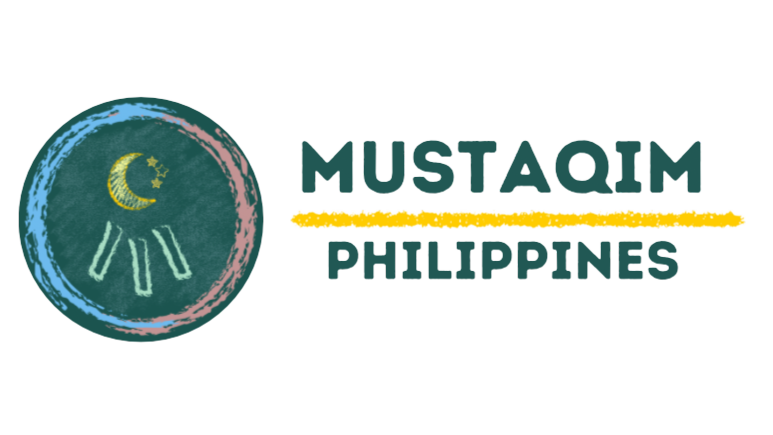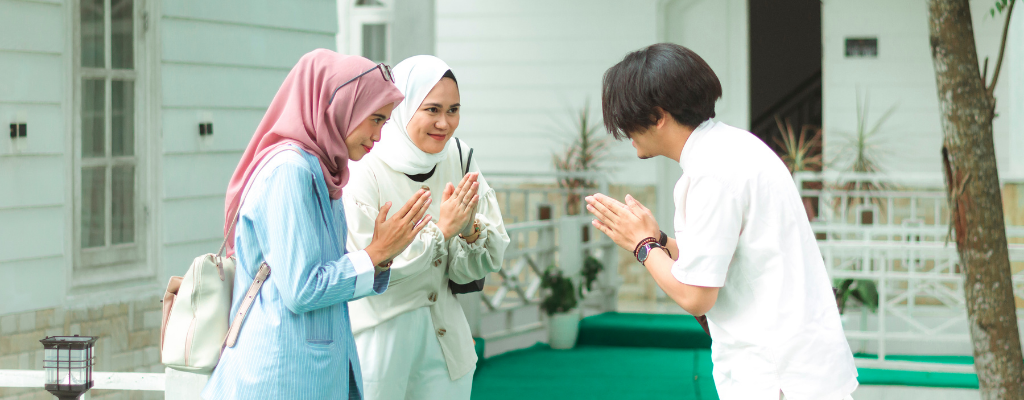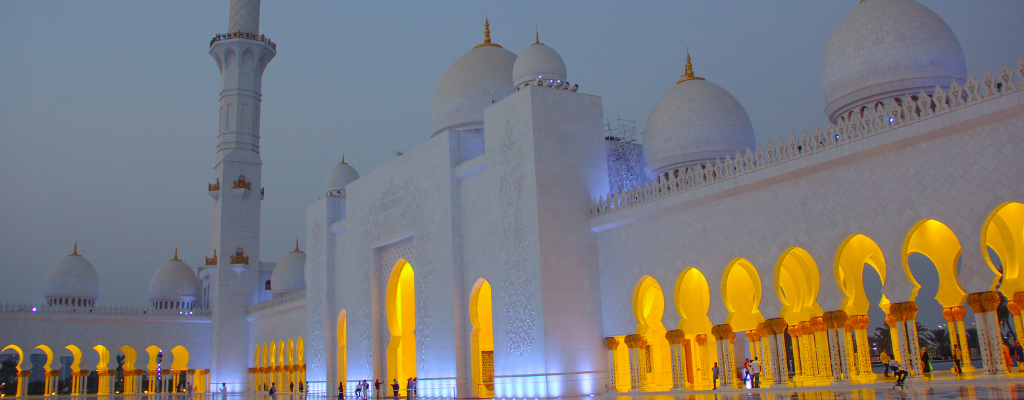Celebrating Ramadan in the Philippines
Ramadan is considered as the most celebrated and known event in Islam. It comes from the Arabic word “Ar-Ramad” or “Ramidha” that means “scorching heat” in English. The Arabs used that term to refer to land which was heated by the sun (fluentarabic.net). The meaning is also associated with the burning of the believers’ sins that is compared to a sun’s power to evaporate water from the ground. During the propagation of Islam, the term was born when the months in the Islamic calendar was all changed from the ancient language according to the seasons, in which the month of Ramadan fell on the hottest month of the year.
In the Philippines, Ramadan is celebrated by Filipino Muslims by way of fasting or sawm, one of the Five Pillars of Islam, wherein Muslims refrain from eating and drinking between dawn and sunset. Before dawn, it is common for them to have one meal before the fasting starts. This is called “suhoor,” and “iftar” which they take after sunset. For Muslims, fasting is their form of worship, a chance to get closer to Allah, and to avoid sins during the holy celebration of their beliefs. Their fasting is accompanied by prayers which is known as “salah” or “salat,” also one of the Five Pillars of Islam.
To mark the end of Ramadan, a special festival is being celebrated called Eid al-Fitr or “The Festival of Breaking of the Fast'' in English. During this celebration, Filipino Muslims are attending communal prayers, giving zakat (charity in the form of food), listening to khutba (prayers), and giving gifts to fellow Muslims.
Ramadan is not a month of Terror
Ramadan is one of the holy celebrations in Islam where Muslims around the world commemorate to strengthen their faith and to make their relationship strong with Allah. Muslims also see Ramadan as a time for peace and spiritual renewal. It is considered as most sacred because in Islam, Muslims believe that Angel Gabriel appeared to Prophet Mohammad and revealed to him the Quran. They believed that this divine event happened during Ramadan.
With all this in context, like any other celebration and sacred event in Islam, terrorists took this opportunity to twist the real meaning of Ramadan and jive it to their ideology of terrorism to become acceptable in Islam. According to the analysis conducted by NBC News on ISIS’s terrorism activities during Ramadan, they said that the ISIS believed “Ramadan is a favorable time to fight because “the devils” are chained up and the heaven is open.” This is according to the ISIS propaganda magazine known as Dabiq, where one of the magazine issues released during 2015 Ramadan stated: “This is because Allah opens gates for the Muslims in Ramadan and upon them, He sends His mercy. Thus, it is indeed a noble month. The gates of Jannah (heaven) are opened and the gates of Hell are closed. The devils are chained up. It is a noble month in which good deeds are multiplied and lowly desires are subdued.” The ISIS used this kind of proof that shows that the Quran or Islam supported their terroristic acts so that they may justify it to other believers that their actions are all based in their faith. Aside from ISIS, other terrorist groups used the same narratives to give way for their attacks. This information somehow correlates to the study and data presented on Datagraver website, a Netherland-based company that provides data insights in population, society, and security. According to them, between 2006-2015, terrorism attacks in Middle East, North Africa, and South Asia were high during Ramadan days than non-Ramadan days. Even the attack by jihadist groups was high during Ramadan than non-Ramadan days according to the data provided by Big, Allied and Dangerous (BAAD), an online data platform of terrorist-related studies.
Given the facts and studies conducted, it is somehow alarming that these scenarios may happen again during Ramadan and for some years to come. With this, the Ummah is still condemning the act of terrorism which is a vital step to end the atrocities and to remind fellow Muslims and other people that justification of terrorism is haram and it has no place in Islam.
Things to do by Non-Muslims during Ramadan
Ramadan is a widely known celebration around the world by Muslim communities. It is being celebrated by fasting, prayer, reciting of the Quran, and reconnecting the faith in Allah.
For non-Muslims, many are curious about the celebration of Ramadan and how they will act towards it. In relation to this, there are a few things that non-Muslims should do during Ramadan around their Muslim friends.
Like what was stated in the latter part, Ramadan is known for fasting as a form of reconnection to Allah. If you have friend who is a Muslim, they may feel pressured about your invites to eat but take into consideration to become more sensitive during fasting time of your Muslim friend. You may ask about the importance of fasting in Ramadan to fully understand his/her situation and gain knowledge.
The next thing associated with fasting is prayer. Between fasting, Muslims conduct prayers by facing east and doing ruku or “bowing” and sujud or “prostration.” When you see your Muslim friend during this act in his/her private time, do not distract them or call their attention. Respect their time doing their prayers and you may talk to them right after.
Moreover, food is also part of Ramadan. Muslims are allowed to eat before sunrise, which is known as “suhoor,” and after sunset, which is known as “iftar.” If your Muslim friend invited you to their iftar, feel free to join because it is allowed for non-Muslims to feast together with Muslims during this meal time. It can serve as a form of inter-faith engagement to share your faith together and to have knowledge in Muslim celebration of Ramadan. This activity can be a good time to ask your Muslim friend about the things you need to know about Ramadan or Islam.
In terms on how you will greet your Muslim friends celebrating Ramadan, you may say “Ramadan Mubarak,” which means “happy Ramadan”. When Ramadan ends, it is now the Eid al-Fitr. You may greet your Muslim friends, “Eid Mubarak,” which means “Happy Eid.” Surely, your Muslim friends will appreciate your effort of greeting them in one of the most important and celebrated occasion in their religion.
To wrap things up, these are the few things that we can do as non-Muslims during the Ramadan celebration. Ramadan is a time of reconnection to Allah and a time of celebration for our Muslim friends. Even we are non-Muslims, we can support our Muslim friends by doing the things we provide in this article. Ramadan Mubarak! Happy Ramadan!
Modern Leadership and the Islamic Perspective
As the National Elections draw near, it is the responsibility of the Filipino people to vote and elect a leader who shall steer the country into success and progress. While we are a diverse people, with various cultures, dialects, traditions, and religions, we share the same concept of leadership and how to choose the best leader of our country.
Intelligence, self-confidence, determination, integrity and sociability are the traits that are associated with effective leadership in modern leadership theories (Northouse, 2018). This means that a leader must have charisma, skill, and righteousness which are all vital in steering a country, and its people to greatness.
Meanwhile, as Filipino Muslims, it is also our responsibility to go back to the sources of our faith - the Holy Qur’an and the Sunnah - in order to be guided in choosing the best leader for our country.
The article “A Review of Islamic perspectives on leadership” gives us a comprehensive discussion on the model of Islamic leadership and what Muslims should look at when choosing a leader. The model of Islamic leadership has four dimensions: Consciousness of God, Competency, Consultation, and Consideration (The 4C model).
Leadership in Islam is based on the principle of trust (Amanah). The leader is trusted to lead a group and is accountable to both the group members and to God. To be able to fulfill this trust, humans are gifted with the ability to learn –from the beginning of creation, Adam was created as a vicegerent on earth and was accordingly instructed, ‘Note that occasion, when your Lord said the angels: I am going to place a vicegerent on earth’ (Qur’an -Surat al baqarah [2]: ayat 30).
As the article emphasizes, the concept of trust in leadership is expected at all levels of leadership within the Islamic cultural dimension – the ruler, who has authority over people, is a guardian and is responsible for them; a man is a guardian of his family and is responsible for them; and a servant is a guardian of his master’s property and is responsible for it. This concept of shared leadership unifies the organization into a team. Trust and accountability go in tandem.
Islam emphasizes accountability to God and to the people who one has been trusted to lead. ‘If a person dies having cheated the people s/he was entrusted with, he will not enter paradise’ (Muslim, 2000). Upon acceptance as the first Caliph after the death of the Prophet Mohammad, Abo-Bakr famously stated, ‘I have been made your leader, and I am not better than any of you. Support me if I do well and correct me if I do wrong’ (Al-Salabi, 2001). Accountability is further emphasized in the Holy Qur’an (Surat- banee israeel [17]: ayat 13-14):‘And every man’s fate, We have fastened on his neck: on the Day of judgment we shall bring out for him a scroll that he will see spread wide open (13), “Read your scroll! You will suffice this day as a constant reckoner against you (14).”’ Modern theories of leadership also emphasize the concept of accountability in the dispensation of leadership. As stated by Fitzpatrick, ‘leadership entails a dynamic relationship based on mutual influence and common purpose between leaders and collaborators in which both are moved to higher levels of motivation and moral development as they affect real, intended change’(Fitzpatrick, 2012). From the modern perspective, leadership is a process that entails influencing an organized group towards achieving a common goal (Northouse, 2018). Likewise, this perspective is shared in the execution of Islamic leadership.
Additionally, consultation, justice, and freedom of thought are the main principles of Islamic leadership. The framework for a moral basis of ethical leadership in Islam is centred on the willingness to submit to the Creator. Indeed, doing one’s best (Ihsan) is an important aspect of the moral responsibility of Islamic leadership.
From this, we can derive that a leader, both in modern leadership and in the Islamic perspective, is someone who is trusted by the people because of the goodness of his intention. When we trust someone, we know that his actions and plans are for the benefit of all. Also, a leader is someone who has a sense of accountability - that is, he has the responsibility to answer to all of his decisions and actions, in the face of his community, and in the face of God. A leader is also someone who is righteous and at the same time, has the ability, competency and skill to lead his people. Finally, a leader is someone who is just and listens to his people through consultation especially on challenges and matters that will affect the entire nation.
Reference: Abdallah, A. ., Çitaku, F. ., Waldrop, M., Zillioux, D. ., Preteni Çitaku, L., & Hayat Khan, Y. (2019). A review of Islamic perspectives on leadership. International Journal of Scientific Research and Management, 7(11), 574–578. https://doi.org/10.18535/ijsrm/v7i11.sh02
Madaris in the Philippines
The term Madrasah (plural of Madaris) is an Arabic word that means “a place of study” or “school.” It is derived from the root word “dars,” which connotes a learning process carried through drill lessons. Also derived from the same root are: (1) mudarres, meaning a male teacher, while mudarresah is a female teacher; and (2) derrasah, meaning studying or studied subject. (Ismael, 1995). In other words, Madaris is an educational institution for Muslims. It can be considered as private schools operated through local support and foreign donations, especially from Islamic countries.
The main focus of Madaris curriculum revolves around Islamic studies and Arabic language. In addition, it has three general descriptive types in the Philippines: traditional, formal, and standard private. The traditional or weekend madrasah is considered a non-formal school that focuses on religious instructions. It is called weekend madrasah because the class usually starts during Saturdays and Sundays only or depends on the days agreed by the students and teachers. The developmental or formal madrasah is somehow inline with the formal education system that operates like a regular school. This type of madrasah is somehow different and advanced than traditional madrasah. The students in this school go through madrasah edadi (pre-school) and madrasah sanawi (high school) where subjects like Mathematics and Science are taught. The standard private madrasah is aligned with the DepEd Order No. 51 which is about the standard curriculum for elementary public schools and private Madaris. It means that its curriculum is aligned with DepEd to be recognized. One of the importance of this school is the inclusion of ALIVE that stands for Arabic Language and Islamic Values Education which is vital in every Muslims in the Philippine schools.
In these challenging times, given that the Bangsamoro Government is in transition, the quality of education in Madaris in the Philippines, particularly in Mindanao, is still improving. Together with the Bangsamoro Government, they passed an education code, improved education by way of standardization of special eligibility of Madaris teachers, granting financial assistance to accredited Madaris, and building new and more Madaris in BARMM areas to empower the educational institution.
Qualifications of a Caliph
In our previous article, we talked about how a caliph was chosen, a brief history about the Perfect Caliphs, and how the succession ends. Now, let us take a look at the qualifications of the caliph.
During the death of Prophet Mohammad, Muslims were divided on choosing Abu Bakr and Sa’d ibn ‘Ubadah to be the next caliph. Their problem is the qualification of the next successor of Prophet Muhammad because he did not mention or appoint his successor until his death. This gave a way for Muslims to look at the qualifications of Abu Bakr and ibn ‘Ubadah. They considered Abu Bakr because of his closeness to Prophet Muhammad when he was alive. Abu Bakr was Prophet Muhammad’s close companion, adviser, father-in-law, and they belong to the tribe of Quraysh of Mecca Muslims. On the other hand, the consideration of ibn ‘Ubadah of being a caliph was based on his capability, knowledge in Islam, and belonging to the tribe of Khazraj of Medina Muslims; although he is not related to Prophet Muhammad aside of being one of his companions like Abu Bakr. This gave the way for ibn ‘Ubadah’s view and his Muslim supporters to consider the principle that any Muslims can be a caliph given that he has necessary qualifications and knows Islamic principle. This is in contrast to Abu Bakr’s supporters and view that being a caliph must be from the clan of Quraysh. These two principles of qualifications on selecting a caliph pave a way to have a division of Muslims into Sunni and Shiite branches.
On the other hand, there is a clear definition of qualifications of caliph according to H.A.R. Gibb and Harold Bowen’s book of Islamic Society and the West. According to the book, “It was held that the caliph must be a male, free, and of age and normal physical capacities, possessed of a certain degree of piety and of legal knowledge and perception, capable of directing the public administration and of leadership in war. Moreover, though he might delegate the performance of certain of his functions to qualified persons, he could not divest himself of his ultimate responsibility for all the actions of the government.”
How a Caliph is Chosen in Islam
Choosing the next leader in any organization is a vital part of its growth and future. As demonstrated in history, it may be a rigorous process that can be tainted with rebellion and misunderstandings. but it reinforces the point that everything under the sun is subject to being led.
In relation to this, specifically in Islam, when the word “leader” comes out, we immediately think of a “caliph” or “caliphate”. Caliph or Khalifa in Arabic means “successor”. In the history of Islam, it refers to a Muslim community leader and in the Holy Quran, it means “God’s steward” or vice-regent”. The term “caliph” became eminent during the death of Prophet Mohammad, although he was considered as the first ruler of the Muslims. During his death in 632 AD, the Muslims from Mecca and Medina gathered to choose his successor between Abu Bakr and Sa’d ibn ‘Ubadah. In the end, Abu Bakr became elected as the first caliph or ruler of Muslim population. Abu Bakr’s title was Khalifat rasul Allah which means “Successor of the Messenger of God”. He was succeeded by three other caliphs - ‘Umar ibn al-Khattab or ‘Umar I, ‘Uthman ibn ‘Affan, and ‘Ali. All of the first four caliphs were named as Khulafa Rashidin or “The Rightly Guided Caliphs” and also known as “The Perfect Caliphs.”
According to The Conversation website, the Perfect Caliphs were chosen by three different methods: public election, designation by a previous caliph, and assigning a caliph by council. Moreover, according to some Muslim scholars, ancient Arab custom of selecting caliph is by way of selecting the chief of tribe. This was done during the pre-Islamic era. However, in the case of the Perfect Caliphs, the consultation or al-Shura was made. During that time, Muslims heavily relied on this matter in selecting their next caliph. Contrary to this, some of the succeeding caliphs were chosen by way of dynastic rule.
The caliph succession was abolished on March 03, 1924 by the Turkish Republic. The last caliph was Abdulmejid II of the Ottoman Empire and the only Caliph of the Republic of Turkey.
Commissioner Abas: A Hope and Inspiration for all Muslims
The Commission on Election (COMELEC) is one of the most recognizable government agencies in the Philippines which is headed by top qualified officials appointed by the President. Now, as the local and national election draw near, three of the notable commissioners have retired that left a mark in our history. Among the three retired commissioners was retired Commissioner Sheriff Abas.
Retired Comm. Abas is from Mindanao and first named commissioner by former President Noynoy Aquino at the age of 35 in 2015. He has many “firsts” when he assumed the post as commissioner in COMELEC - he was the youngest chief in the Philippine history to have chairmanship post in 2017 at the age of 38, the first Muslim, and the first Mindanaoan to hold the post. Before he was appointed to the post, he has a working experience as a lawyer and acting regional director at Civil Service Commission (CSC) in Autonomous Region in Muslim Mindanao (ARMM) for 8 years. Her reputation and credentials can be traced in his fruitful years of education. He graduated from Notre Dame University in Cotabato City with a degree in philosophy in 1999, took law at the Ateneo de Davao University in 2004 and passed the bar in 2005.
One of the accomplishments of retired Commissioner Abas was the 72% voter turnout during the 2019 Midterm Election with 46.3 million out of 61.8 million registered voters participating. This was considered a success and one of the highest voter turn out in the history of election in the Philippines during his leadership.
Retired Commissioner Abas is not only an ordinary public official, he broke the barrier of societal stigma on religion and proved that regardless of your belief, you can climb up to the top and excel, serve our people well, and create meaningful achievements that can be beneficial to society. He served as an epitome to all Muslims who are still hoping and dreaming that they can contribute to the nation, now and in future.
THIRD FOUNDING ANNIVERSARY OF BARMM
On 17 January 2022, the Bangsamoro Autonomous Region in Muslim Mindanao (BARMM) celebrated its week-long 3rd founding anniversary through an opening program and “gong” banging by “Wali” (Muslim religious leader) of the Bangsamoro, Sheik Khalifa Nando, inside the Bangsamoro Government Center (BGC) in Cotabato City. The theme of this year’s celebration was “Changing People’s Lives, Transforming the Bangsamoro: Celebrating and Sustaining the Gains of Peace and Moral Governance.”
The theme highlighted the regional government’s effort and breakthrough in achieving peace and development, reformation, and strengthening the Bangsamoro government for the past three years. In relation to this, the opening message of BARMM Senior Minister Abdulraof Macacua focused on Bangsamoro’s historical milestones for the past three years. He also emphasized the significant achievements in the region like the decrease in poverty incidence, approval of the Bangsamoro Transition Authority (BTA) extension, increased investment and employment rate, strengthened Halal industry development, high number of land distribution, and the approval of P79.8 Billion budget for 2022 in the region. In addition, BARMM Chief Minister Ahod Ebrahim urged everyone to continue the peaceful and moral governance while Parliamentary Speaker Atty. Pangalian Balindong emphasized the declined incidents of violent extremism and the presence of extremist groups in the region. Moreover, during the ceremony, the region’s Ministry of Interior and Local Government (MILG) turned over its Special Development Fund to some beneficiaries while the Ministry of Labor and Employment (MOLE) awarded the overseas workers for their contribution, achievements, and sacrifices for the country.
During the celebration, each ministry of the BARMM has prepared various activities for the program. According to Ameen Andrew Alonto, OIC-Executive Director of Bureau of Public Information (BPI), the Ministry of Agriculture, Fisheries, and Agrarian Reform will open its MAFARlengke (MAFAR Local Exchange and Network of Goods in any Kind of Emergency); the Ministry of Environment, Natural Resources, and Energy (MENRE) will conduct clean-up drives and distribution of land titles; the Ministry of Trade, Investments, and Tourism (MTIT) will hold free business registration; the Ministry of Public Order and Safety (MPOS) will conduct community-based training on mediation and values transformation; and the Ministry of Indigenous People’s Affairs (MIPA) will distribute educational financial assistance to elementary students according to Philippine News Agency.
Before its foundation, the BARMM was formed and replaced the Autonomous Region in Muslim Mindanao (ARMM) by the ratification of its basic law, the Bangsamoro Organic Law (BOL) followed by two-part plebiscite in Western Mindanao on January 21 and February 6, 2019. Before the formation of BARMM, several years of peace talks occurred between the Philippine government and other autonomist groups, one of them is the Moro Islamic Liberation Front (MILF). The agreement between the national government and MILF, known as Comprehensive Agreement on the Bangsamoro (CAB), occurred between the Aquino administration and the MILF representatives. The BARMM is currently on its transition period until this year but extended until 2025 by the law signed by President Duterte. The foundation of BARMM is considered as milestone of peace and development of the government and our Muslim brothers.
Pinaghiusa Grand Peace Conference
The Manila Bulletin reported that despite the continued threats of violent extremism and terrorism in many parts of the Philippines, hundreds of young leaders representing indigenous groups, Christian and Muslim communities, and other backgrounds mobilized in a powerful showcase of peace through the Panaghiusa Grand Peace Conference, held at the Tagum City Historical and Cultural Center.
Funded by the European Union and supported by the Kofi Annan Foundation; the nonprofit organization, Kristiyano-Islam Peace Library; and the local government unit of Tagum City, the grand conference was the culminating activity of the Extremely Together Philippines-Panaghiusa (ET Philippines) program, which aimed to prevent violent extremism and promote peace through youth leadership in the Philippines.
"Violent extremism is like a pandemic that we can cure through unity and education. This is why we are working to educate, empower and inspire young people to become peace-builders, who can strengthen the resistance of their fellow youth against terrorism," shared Paula Gendrano, co-project lead of ET Philippines.
"We are celebrating the accomplishments of the ET Philippines program since we launched in 2020. This is a milestone we're sharing with our partner youth leaders from Tagum City, Zamboanga City, Marawi City, Luzon and other areas where we've held our activities. At the same time, it is a call to action to strengthen the unified efforts of young Filipinos towards peace as we face the challenges of the pandemic, poverty, inequality, and more," Gendrano added.
Source: https://www.manilatimes.net/2021/12/07/public-square/christian-muslim-tribal-leaders-convene/1824929










